In the week ending May 25, Western Canadian feeder cattle markets were trading $4 to $8 higher compared to seven days earlier. Some higher quality genetic packages of 700-pound plus cattle were up as much as $10 from week-ago levels.
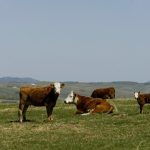
Klassen: Demand for grass cattle pushes feeder market higher
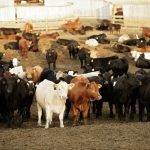
Klassen: Demand for grass cattle pushes feeder market higher
For the week ending May 18, Western Canadian yearling markets were trading $3 to $5 higher compared to seven days earlier. Calf prices were relatively unchanged compared to the prior week. The feeder market appears to be consolidating near historical highs.

Klassen: Feeder cattle market takes defensive tone
It’s that time of year when available supplies start to decline. At the same time, demand is limited. Most backgrounding operators have sufficient numbers and demand for grassers is waning. Ontario interest was noted in Manitoba and Eastern Saskatchewan, which appeared to sustain prices near last week’s levels.
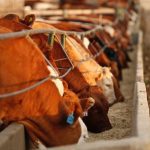
Klassen: Feeder cattle experience weather market
For the week ending May 4, Western Canadian feeder cattle prices were quite variable and the market was hard to define. Alberta and certain regions of Saskatchewan received snow, which caused the market to trade $3 to $5 lower. However, in Eastern Saskatchewan and Manitoba, feeder cattle prices were steady to $3 higher.
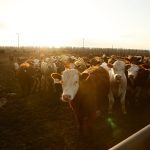
Klassen: Stronger fed market underpins feeder complex
For the week ending April 27, Western Canadian feeder cattle markets were relatively unchanged compared to seven days earlier.
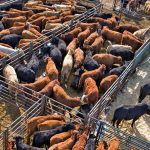
Klassen: Feeder market recovers from weather discount
Compared to last week, backgrounded yearlings traded $4-$8/cwt higher on average. Calves were quite variable with prices quoted from unchanged to as much as $10 higher. Overall, there appeared to be stronger buying interest this week across all weight categories.
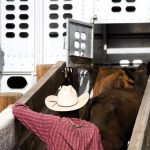
Klassen: Adverse weather weighs on Western Canadian feeder market
Southern Alberta has received over 200 percent of normal precipitation over the past 30 days. Pen conditions are rated poor to very poor in the main feeding pockets of Alberta. Saskatchewan and Manitoba have received less than 40 per cent of normal while Central Alberta has normal to below normal precipitation.

A ‘miracle’ in calving season
Rare act of science plus expert cattle handling save a calf and its mother in central Alberta
Reading Time: 4 minutes Calving season can be a stressful and dramatic time on the ranch. There’s a lot of new life but there is often death as well. Every once in a while, however, something happens that seems like a miracle. Just ask Chris Paulencu with Green Acres Cattle Company, a seedstock operation in central Alberta’s Lamont County. […] Read more
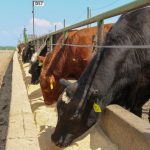
Klassen: Buyers step back on feeder cattle due to bird flu
Compared to last week, Western Canadian feeder cattle markets traded $4-$8/cwt lower while some packages of heavier replacements dropped as much as $12/cwt, and three main factors led to weaker prices.
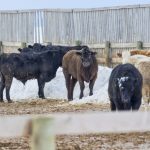
Klassen: Feeder market resumes the climb
For the week ending March 30, Western Canadian feeder cattle markets traded $4 to $6 higher on average. Fleshier backgrounded yearlings were relatively unchanged. Buyers were fairly cautious on backgrounded heifers with some packages actually softer than seven days earlier. Larger strings of quality genetic, low flesh steers were up $6 to as much as $10 in some cases. Weaned, premium, calves were up a solid $5 to $6 on average.

